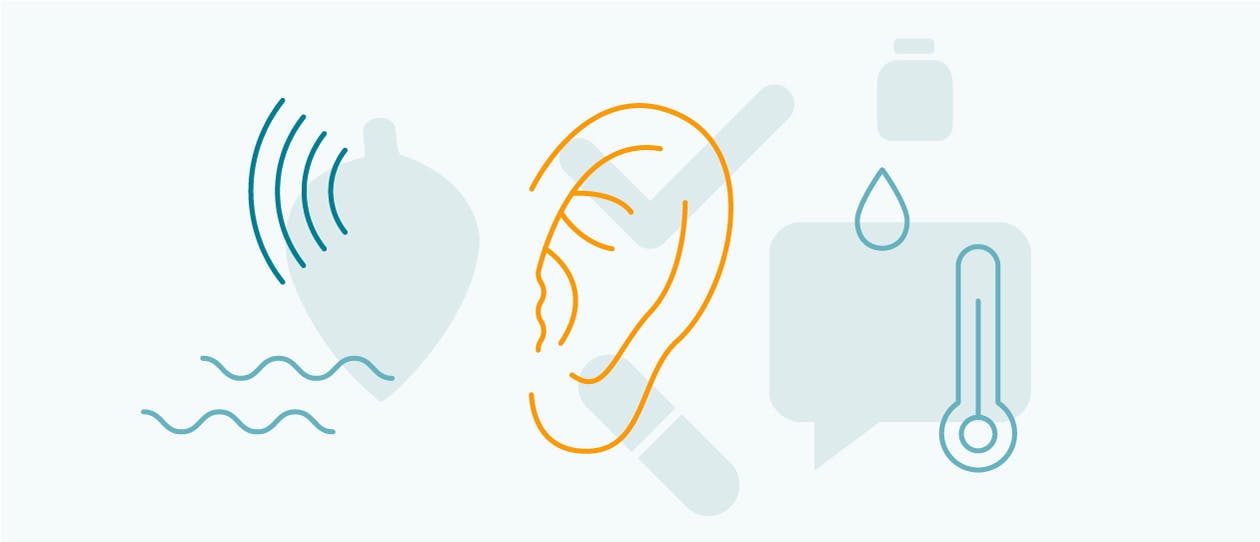
Tinnitus
1
Tinnitus is the sensation of ringing in the ears or the head


These diet and lifestyle suggestions may help minimise tinnitus:
Tinnitus can sometimes be related to an underlying health condition and should always be discussed with your doctor or healthcare professional. It is also important to seek medical advice if you are suffering from symptoms of infection, pain, dizziness or pus in the ear.
If symptoms of tinnitus persist see your healthcare professional.